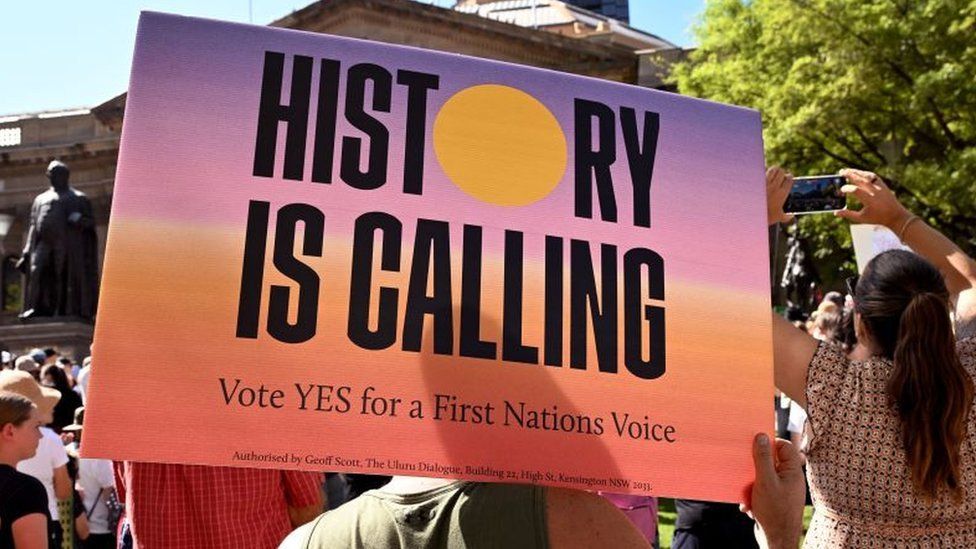-

-
-
Loading

Loading

Australia's historic referendum, taking place this Saturday, is seen as a once-in-a-lifetime opportunity by Aboriginal community leader Karen Gibson. The referendum aims to recognize First Nations people in the constitution by establishing a Voice to Parliament, which would advise the government on issues affecting Aboriginal and Torres Strait Islander communities. However, the campaign has been divisive, with polls indicating a potential win for the No vote. Despite wanting the Yes vote to succeed, Gibson fears the referendum may prove that her ancestors, and by extension the indigenous community, are still invisible to Australians. Aboriginal and Torres Strait Islanders make up nearly 4% of Australia's population, but the non-Indigenous majority will ultimately decide the outcome. The referendum is seen as crucial in rectifying historical wrongs by addressing disparities in employment, infant mortality, suicide rates, and incarceration rates faced by First Nations people. Chief executive Suzanne Andrews emphasizes the need for decisions about health and housing to be made by people on the ground in communities rather than in Canberra. While some conservative voters view the referendum proposal as divisive, supporters argue that recognizing the truth of Australia's historical treatment of indigenous peoples and addressing disparities will bring the nation together. The referendum has also exposed divisions within indigenous communities, with some prioritizing legally-binding treaties over the Voice. Regardless of the outcome, this referendum is expected to shape Australia's relationship with its First Nations peoples for decades to come.